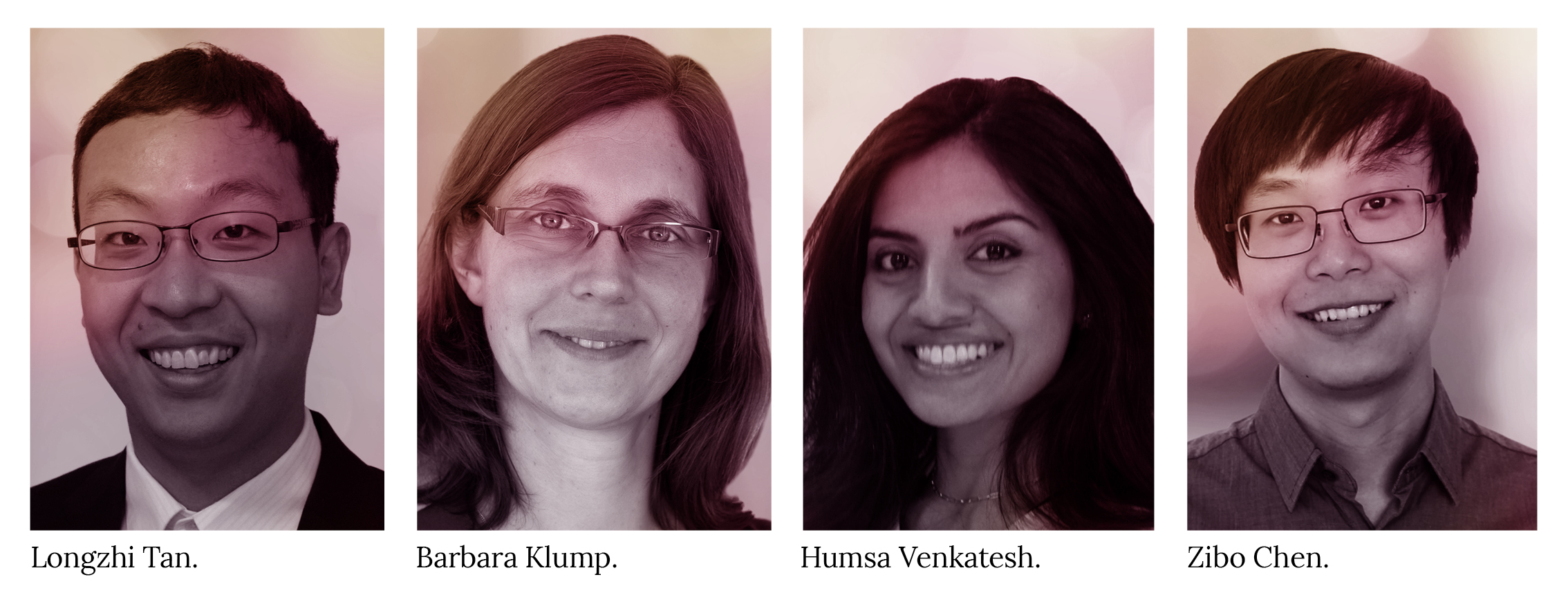Research Reveals Three-Dimensional Genome Structure of a Single Cell
At a time when senior and well-known researchers are celebrated at this year’s Nobel Prize award, SciLifeLab, together with the internationally renowned journal Science, chooses to globally highlight and encourage prominent young life science researchers.
In the second week of December, it is time for the annual Science & SciLifeLab Prize for Young Scientists to be awarded, where four young researchers are awarded for their outstanding research in life science. It is the seventh time the prize is awarded.
Longzhi Tan, who received his PhD from Harvard University and is currently a Postdoc at Stanford University, has been named this year’s Grand Prize Winner. He will be awarded US $30,000 and have his essay published in Science magazine. Tan wins the Grand Prize, in the category of Genomics, Proteomics, and Systems Biology, for his research on Dip-C, a new methodology that can reveal the three-dimensional chromosome structure of single cells.
Barbara Klump, Postdoc at the Max Planck Institute for Animal Behavior, Radolfzell, Germany, wins in the Ecology and Environment category, for her research on animal cognition and how certain species’ ecology and social structure shape their natural behavior. This knowledge can shed light on how tool use has evolved during human history. She received her PhD at the University of St. Andrews, UK.
Humsa Venkatesh, who received her PhD at Stanford University where she is currently a Postdoctoral Fellow, winner of the Molecular Medicine category, is awarded the prize for her discovery of the relationship between bioelectric activity of neurons and tumor growth in the brain. Humsa also identified a way to slow tumor growth in vivo. Her research may lead to new treatments for a variety of brain tumors.
Zibo Chen, Postdoc at the California Institute of Technology, wins in the Cell and Molecular Biology category for his work on designing proteins using hydrogen bonds – the same type of bonds that exists between DNA base pairs. These synthesized proteins could potentially be used to create synthetic signaling pathways or programmable self-assembly of proteins. He received his PhD from the University of Washington.

In December, the winners will be invited to Sweden where they will receive their award and participate in a number of scientific events. They will present their work at the Science & SciLifeLab Prize Symposium: Roads to Research Excellence, which also includes a presentation by keynote speaker Lou Woodley (Center for Scientific Collaboration and Community Engagement) on community-building within science. During their visit, the winners will also meet with leading researchers in their respective fields, discuss research with high school students and participate in the award ceremony, which will be held at the Hall of Mirrors at Grand Hôtel, the original venue of the Nobel award banquet.
“It is a great pleasure for SciLifeLab to co-host this young scientist prize again with Science and with the Knut and Alice Wallenberg foundation. The four scientists selected as prize-winners have made remarkable and groundbreaking discoveries in their fields. They have also shown great talent in condensing their work and thoughts into a short essay. These essays were successful in a highly competitive peer review process carried out by the editors of the Science magazine. We congratulate the prize winners and look forward to welcoming them to Stockholm in December to deliver their prize lectures, take part in festive award ceremonies as well as engage in scientific discussions with the SciLifeLab community” says Olli Kallioniemi, Director of SciLifeLab, in a press release from AAAS/Science magazine.
More information:
- Read more about the winners and their research at the Science magazine webpage
- Tune in to our podcast featuring all four winners, sharing their current work and scientific journeys.
- Make sure not to miss the Science & SciLifeLab Prize Symposium: Roads to Research Excellence where you will meet the winners and learn more about their research. Register on:
http://scienceprize.scilifelab.se - If you have any questions or would like to book interviews with the winners, please contact Karin Nedler (Communications Officer at SciLifeLab),
karin.nedler@localhost, +46 70 292 56 37
About the Prize
The Science & SciLifeLab Prize for Young Scientists is an international award established in 2013 by SciLifeLab and Science magazine, aimed at rewarding life science researchers at an early stage of their careers. Recent PhDs are invited to submit an essay based on their doctoral dissertations. The essays are reviewed by a jury from Science, in terms of both scientific quality and the ability to communicate the research to a wider audience. A winner from each of the following categories is selected; Cell and Molecular Biology; Ecology and Environment; Genomics, Proteomics and Systems Biology; and Molecular Medicine. A Grand Prize winner is selected from the four category winners, rewarded with US $30,000 and his or her essay published in Science magazine. The category winners receive $10,000 each and their essays are published in Science online. The Science & SciLifeLab Prize for Young Scientists is made possible through the kind support of the Knut and Alice Wallenberg Foundation.




